This is important. This means something.An introduction on Jerry Saltz.... Jerry Saltz (born March 19, 1951) is an American art critic. Since 2006, he has been senior art critic and a columnist for New York magazine. Formerly the senior art critic for The Village Voice, Saltz has been nominated for the Pulitzer Prize in Criticism three times. He was the sole advisor for the 1995 Whitney Biennial. Saltz has also served as a Visiting Critic at The School of Visual Arts, Columbia University, Yale University, and The School of the Art Institute of Chicago and the New York Studio Residency Program. He lives in New York City with his wife Roberta Smith, senior art critic for the New York Times. Thank you Wikipedia. Well, I must say that our first lecture of the residency was a good one. Jerry Saltz has character and energy. I didn't really know what to expect. I knew that he was a critic and wrote for the New York Magazine, but that was about it. His fascination with the artist and their world was so interesting. I'm always curious about the art critic and art historian. What drives them to understand visual arts? Sometimes I think its a case of failed misplaced artist- and sometimes it is. I think that was the case with Jerry Saltz. He claims that if you are an artist and you don't make art for one year thats ok, but if you don't make art in two years you're not an artist. He said he fell in the latter group. He's self made; used to be a truck driver and now he's one of ten leading art critics left (is it a dying industry?). Saltz spoke with us, a group of about 32ish, for about 3 hours. I took 3 pages of notes. Some of the things he said really home for me. But sometimes I wonder if I was the correct target audience for his lecture to begin with. The lecture was basically, "I'm going to tell you how to get famous". I don't know if thats me - yet - or if I want it to be me ever. I'm very on the fence about art fame. But regardless of fame, he did have some good things to say about being a successful artist that does align with my own ideas of success. In other parts of his lecture, not so much, but I'm still young and have a lot to figure out the art world. "THIS IS A VOLUNTEER ARMY." True that. The art world isn't an easy one, not that any job is (don't get your panties in a wad accountants), but artists choose to be artists. I don't think I've ever met an artist to say otherwise. Its something we feel like we have to do. "You are driven to do something and to do it in public" Jerry says. Even if we don't understand who our audience is or why, we still require one. We do our thing (art) then we show it to people (you). "IF YOU'RE DOING SOMETHING THAT'S BEEN DONE BEFORE -- DO IT AGAIN. I DON'T CARE WHERE IT CAME FROM." That was interesting to hear. Because on a daily basis I am constantly hearing "...do something that no one has seen before" or "...I've seen that before, do something new". But it makes sense to do it over and over again- you have to learn the rules to make them you're own and maybe that means making the same shit you like over and over again to make it yours so it can become something different. I didn't realize how glad I was to hear that. It felt good to hear it. The public, critics, and so forth doesn't care where the art came from- just that it creates an experience for them. Maybe I really like Rothko so I paint like him and find a way to turn it into mine. (I do really like Rothko but I don't want to paint like him- so maybe that was a bad example.) Or if my studio neighbor is using Cad Orange and it makes me realize that Cad Orange is what my painting needs--then use it! I think in art schools especially this is important. Its hard not to constantly see what your neighbors are doing and thinking that they are doing it better, its tempting to borrow. Borrowing isn't always bad though. Jerry Saltz doesn't care where it came from- just do it. "YOU DON'T OWN THE MEANING OF YOUR WORK." Damn right. That is why I think the artist statement is a bunch of bullshit too. The artist is trying to say something, if the work is successful it will hint to that dialogue but the viewer, they each own the meaning and they will always be different. Art is something that does something. Its about experience, not understanding. (Ok, sometimes I'm just really whiney about the artist statement- they are important- I just hate writing them.) "ALL ART NEEDS AN ELEMENT OF ETERNAL- BUT IF THATS ALL IT HAS ITS ALREADY DEAD. ALL ART NEEDS AN ELEMENT OF THE HERE AND NOW." I'd like to end with this rather poetic way of viewing the artist according to Jerry Saltz: "Artists as prophets, plagued by demons."
Well done SVA- I'm more than impressed and can not wait for the rest of the lectures.
0 Comments
Does your art have a shelf life to it? How often do you feel the need to make new work to show? Of course our art has a shelf life to it - AND - no it doesn't. This question is one of those things where I straddle the fence of both sides. Does art have a shelf life to be shown publicly? Yeah, unfortunately it does. Does that make the work any less important? Heck no. If the work is relevant to what I'm currently doing, it is important. Important enough to be shown? Not likely. The hope is that the work relates but can stand without whatever came before it. But if it is that important perhaps it is an opportunity to revisit the work, whether conceptually, materially, or to rework the piece itself. I haven't really done this yet in my career, I'm still really young and haven't acquired years of good art. However, I see myself doing that in the future. That's one of the reasons for keeping everything and not throwing it out. It might be bad art right now, but it could be good art in a few weeks, months, years, etc. Everything has some kind of potential- so keep it. (I really wanted to throw some crap away that I made in the fall but the other grads made me keep it. I'm sure I'll thank them later down the road. But it really was crap.)
I haven't reached a point in my career where I make work just to be shown. I think that will come with some more maturity on my part. Graduate school is hard sometimes, so this past year I just worked to see what I would make; without the intention of showing the work in a gallery space. I ended up with some really good stuff. I find that when I work without the pressure of fitting into a particular "call" for art, the work is stronger. I've tried unsuccessfully to make art just for shows. I usually sketch a lot but don't follow through with any of it. It is something that I am committed to working on however. My goal for this school year is to show more, first locally (because that's usually easiest) then regionally. I think if I do my research the right way, if given enough time in advance, I might be able to follow through with some of those ideas in response to artist calls. That's the plan anyways. A faculty member recommended that I set aside "X" amount of money a month to apply for shows since its rare to find one without a fee. She said even $10 a month is better than nothing (but $10 is a really good thai meal after a had day in the studio -- so you see how I might struggle with this plan?). Most galleries require "new" work made without 3-5 years. Easy for me, I don't like most everything I made past 5 years ago. I just try to make as often and much as possible- because artist blocks are a real thing and they SUCK. Today was the first day of my artist residency. It started out with (free!) breakfast and coffee- off to a great start already. There are about 60ish residents at this time (there are a couple of different summer sessions). Out of those 60, there are 16 in my Bio-Art Program. We are an amazing group! I am so excited to get to know these people and learn from them. We come from all over the U.S. and the world, and varying ages, and only two males out of 16 of us (poor guys!). We had brief 5 minute presentations about us and our work today to get to know the people in our program; and there was some really good work shown. I am so excited to work with these people and get to know them better. I took a lot of notes today just during the presentations just because of some of the interesting things the artists' said about their work. One of my greatest weakness is presenting myself and work- and sometimes its all about having the right words. Bio-Art is a new language for me, so I took notes. The SVA facilities are amazing. The layout makes sense, the building is clean, our studios are white cubes, and they have state of the art stuff for art making! Laser cutters, 3D printers, full wood and metal shops, tons of equipment available for checkout, macs everywhere, and just an overall very impressive building to work in. The Bio lab is going to be awesome to work in, I can not wait to learn cool stuff. Cloning plants, making paintings with bacteria, photographing objects at a microscopic level, the list goes on. This month is going to fly by. Oh yeah, I get to wear a white lab coat- legit.
Check back for more SVA Bio-Art updates. I'm sure I'll have a lot to show and talk about. Today was just the first day. What are you inspired by that is not part of the art world? (tv, music, reading, etc.) I love the non-art world! Don't get me wrong, I love art and the art world, but geez it sure can be annoying, prestigious, cocky, and all around "holier than thou" at times. I like researching artists that I'm really into but I hate artist statements. I like going out to galleries and seeing new work, but I hate that my boyfriend feels inferior about the topic of conversation because of the way everyone else talks about it. The art world can be really annoying at times. Which is why I am more than happy to discuss non-art things that inspire me.
I LOVE (love love love) all things tattoo-related. I like american traditional, new school bio-mechanical, and even blood puddin style tattoos- I have such a deep appreciation for tattooing, the traditions, the tattooers, the process, the variety, and I even enjoy really bad tattoos. I'm moderately covered in tattoos myself and have no plans to stop getting tattooed- but I was already very interested in tattoos before I got my first one. I even had a tattoo doll when I was a kid that came with a bunch of temporary tattoos. I bet my parents regret getting that doll for me now. The tattoo world is continually crossing paths with the art world which is really interesting. It is becoming more common for art professors to leave the academic world and go into tattooing, or for students to receive art degrees and do the same. Its changing the level of expectations for what is possible of tattooing. One of my favorite blogs is Needles and Sins, the editor is an attorney by daytime and working on her full bodysuit and researching tattoos at night. It's a great blog. I also like to watch TV but I don't watch a whole of it. I'm a Grey's Anatomy fan - and there's no inspiration there (its my soap opera). I love the history channel and animal planet. I try to watch documentaries on Netflix often especially about social issues, quality of food, space, and science. I love to read but haven't had the time to do so recently (I'll blame grad school on that one). I'm continually inspired by my family and the relationships within and as a result of them. I can draw inspiration from just about anything as long as I'm in the right mindset. Sometimes I feel like my art-brain has been running for too long of a time and its impossible to turn it off completely. That's where the sketchbook is most important. I jolt down ideas all the time; quotes I hear on TV, interactions socially and individually, and some of the crazy things my parents say at random. I can't trust myself to remember it without writing it down. And it doesn't matter to me if I can back to the idea soon or if its months/years later; it was important at one time and it could be again later. I love the non-art world more than the art world, sometimes. Who are your mentors? Who do you know personally that influences your work the most? Mentors are so important! I'm a firm believer that finding one as an artist will shape not only the work we make but also everything from what we like to the way we defend our work. Mentors shape our growth as artists. Sometimes it is one mentor or a combination of many. And mentors come in all shapes and sizes in my opinion. I was very blessed with my undergrad education in that almost every one of my studio professors became mentors to me. Georgetown College is a small private school and therefore, the art department is small and operates as a family. Daniel Graham is GC's sculpture and printmaking professor and definitely had the most influence on me while in undergrad. He is a super interesting person and full of energy, constantly encouraging of others, and pushes to meet his high standards. We had great conversations together while I was a student there, and we still do. I keep in contact with Daniel and all the faculty there. Darrell Kincer is GC's photography and digital art professor and was an essential mentor in my undergrad career as well. Darrell was the calm to Daniel's energy. I could walk into Darrell's office and have a heart to heart conversation about where I'm going with my work and my life; as I could with Daniel, whereas Daniel would plant the big dreams, Darrell would ask the big questions that would make me think about which parts of my dreams where the most important to me. Between the two I would be asking myself what I wanted and why. My work doesn't look like Daniel or Darrell's work but I am certainly influenced by them in thought process. Both of them instilled a sense of intentionality in me with consideration of my materials, process, imagery, etc. And to consider everything. I still look to these two mentors for approval when I am unsure of my direction. I know that I can email them or pop in at GC and have a conversation about my work (or life- because sometimes I need that too). Lastly, at GC was the art historian and awesome woman Dr. Juliee Decker. This may sound crazy (remember I'm from SmallTown, USA) but Dr. Decker was the first woman I met that was established, married, and happy without children or the intention to have any children. Dr. Decker is strong willed, confident, sassy, so freaking smart, and amazing. I learned so much from her outside of just taking art history courses. I took extra art history classes just to pick up more life skills from Dr. Decker; the way she carries herself, thinks through a situation, and takes charge without making others feel inferior. My first semester at GC I was convinced I was going to transfer, Dr. D was the reason I stayed. She was the first person to reach out to me b/c I was in her Survey of Art History 1 class and she saw the potential in me. Daniel, Darrell, and Dr. D are part of my art family and my real life mentors. One of the challenges of graduate school is learning to have those conversations with yourself (and not in the crazy kind of way- but in the not crazy kind of way). I know what questions to ask myself about my own work but its difficult to hold myself accountable when I'm not verbally having the same discourse with another person. I'm getting better though in seeking out those people to have conversations with. I'm also relying more on the other graduate students (even though the number is small its still an important one). I'm glad that I have the faculty at GC to fall back on when I need free pep talks and help with the direction of my work.
When I grow up.... what did you say you wanted to be when you grew up as a kid? How do those interests influence your work, and how did you settle on being an artist? I've always wanted to be an artist. I may not have known what that would look like or be like as an adult, but I knew I really loved making things. Drawing pictures of my pets, painting the trees, making fairy houses in the creek, and working on dirt sculptures in the woods. My solution to doing these things when I grow up was to be an artist. Now, that's not to say that I didn't have other ambitions as a child too. For a while I wanted to be a vet and save all the animals that were hurt. Sometimes I wanted to be a lawyer and argue my way to a win every time. Oh and for a while I really wanted to write mystery novels and pretend to be a secret FBI agent. But those responses were always followed by "...and an artist". And as I got older I started to drop the other ideas and just stuck with the artist idea. I didn't share it a lot with other people because they just didn't understand. (Not that I entirely understood it either.) I was tired of English teachers saying things like "ok so you will draw but what do you really want to be when you grow up?" They weren't listening to me. I was telling them I wanted to be an artist, end of story. Even at a young age I started to understand that the adult world did not think that "artist" was a real career, or at least this was the case in SmallTown, USA. So I stopped talking about it and kept on sketching and painting.
Then in high school I really invested myself in art. Kimberly Evans, my high school art teacher pushed me- really hard. And she became one of my go to people. She taught me about life outside of our small town, took us on field trips to colleges with art programs, and encouraged me to sketch daily and apply to college. She knew I had it in me way before I ever did. I can not praise her enough. I still call her to this day to talk about whatever I'm working on and for free pep talks. Without her I probably wouldn't be a Blog Watcher today rambling about my artistic goals and such. Anyways, back to the question: how do those interests influence your work? I'm not sure that they do or if they do how so. Maybe its something I should visit. Brandon's response to this question is a lot more interesting than mine because he has a body of work that relates to his childhood ideas of superheroes. I guess I'm interested in the root of who we are which relates to how I grew up in the woods and such. Making things out what naturally exists, but that may be a stretch since lately I've been incorporating more and more materials that are less natural. I'm not really sure. Maybe I need to think about it a little more. In short, I guess I've always known I was going to be an artist. |
Author/ArtistI am a contemporary artist focused on the intersection of art and science in Lexington, KY. Archives
September 2018
Categories
All
|
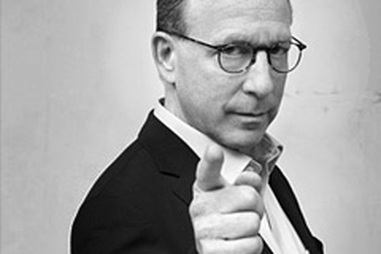
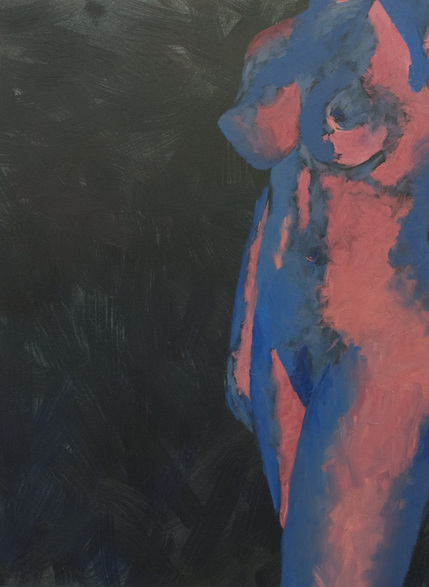
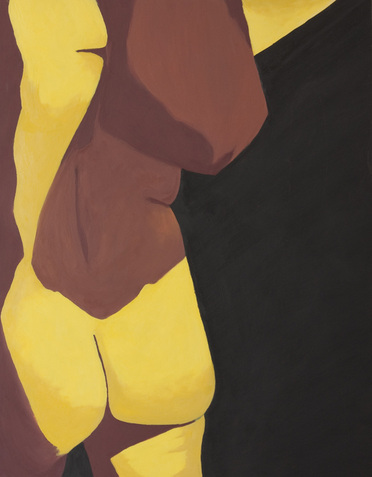
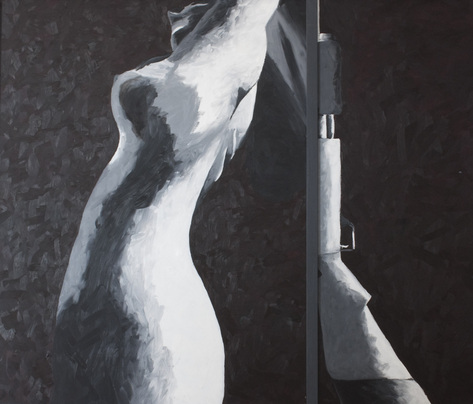
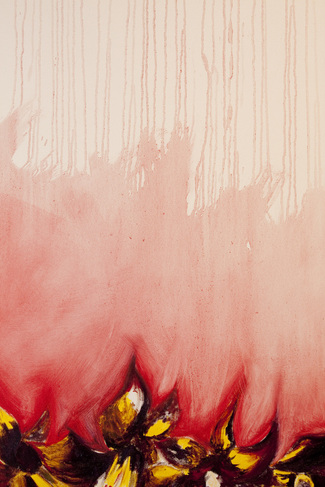
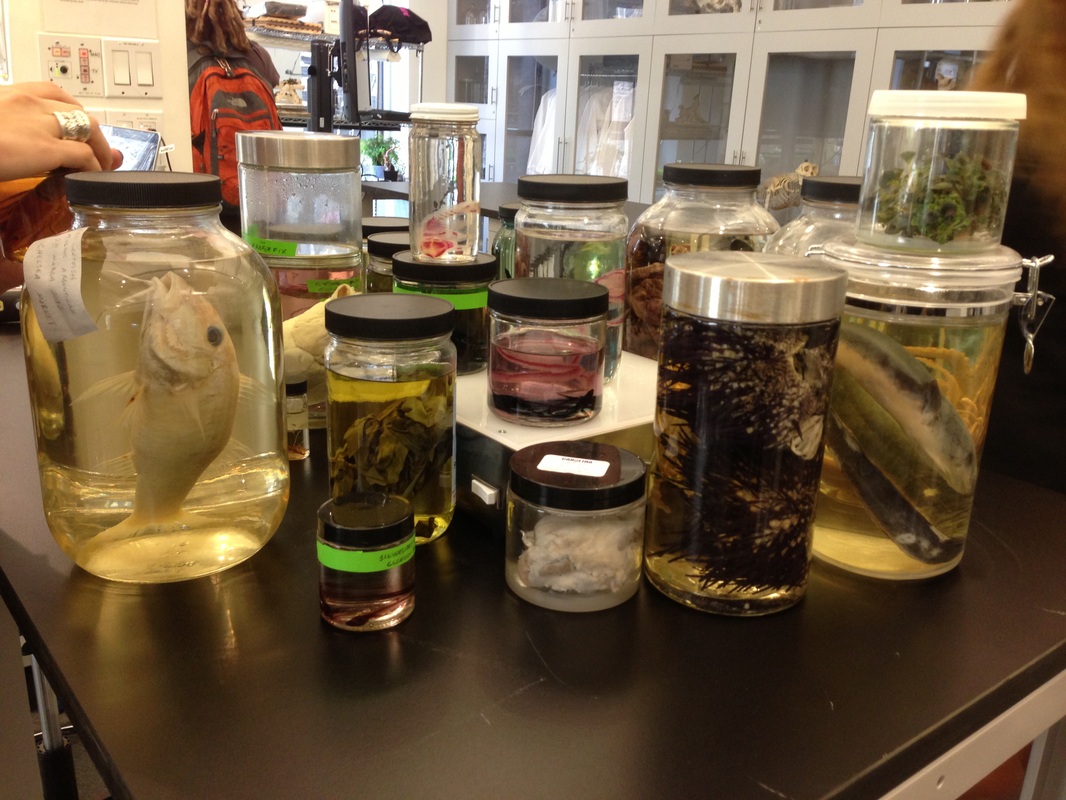
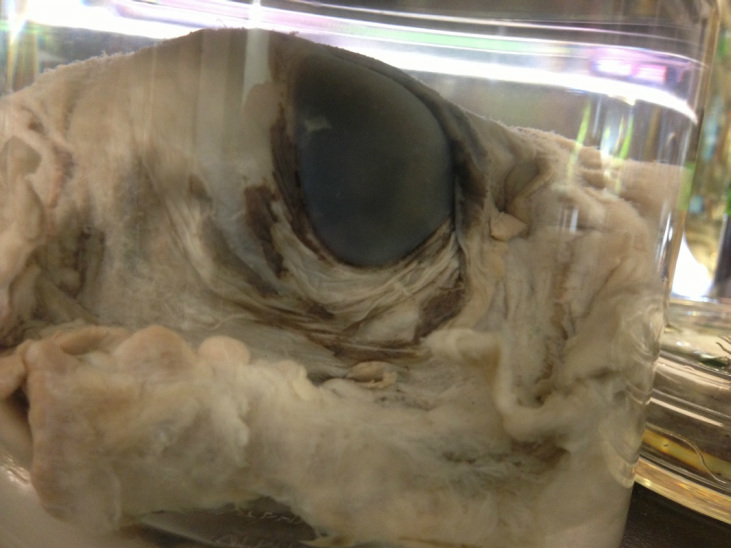
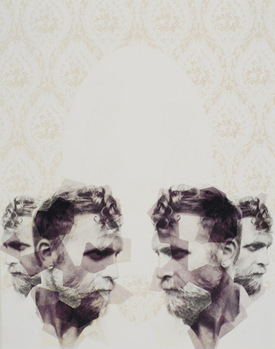
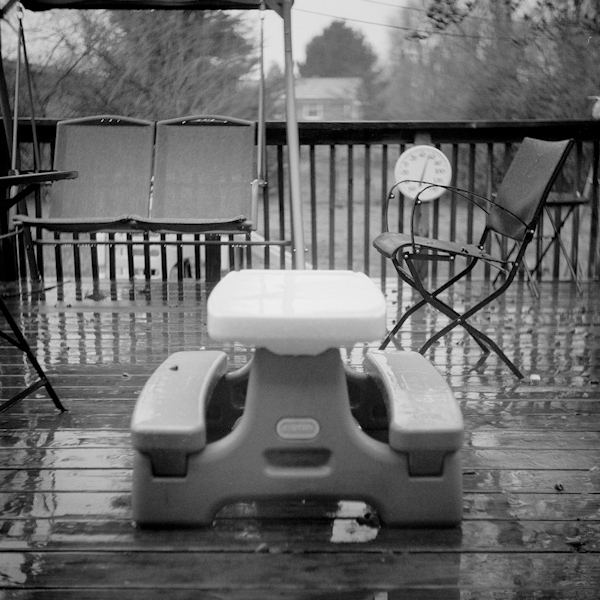
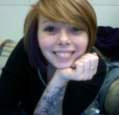
 RSS Feed
RSS Feed
